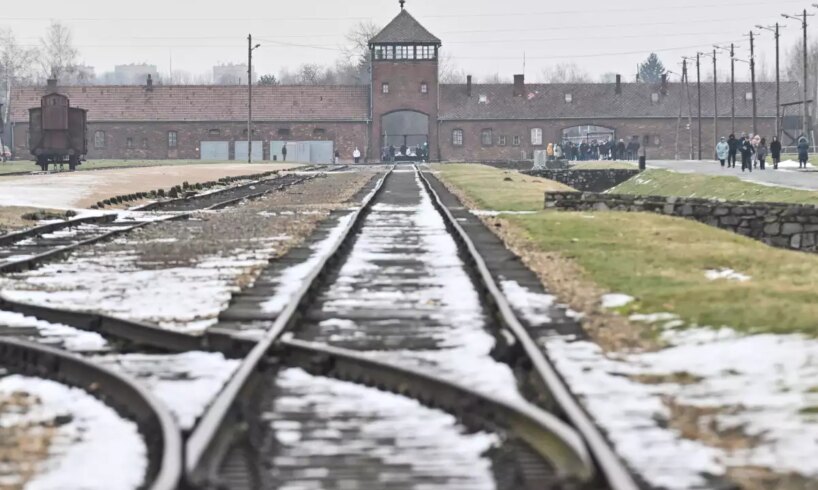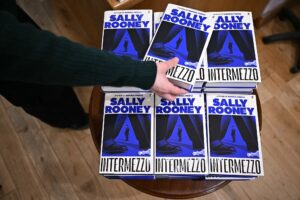
The new US ambassador to Poland, Thomas Rose, recently delivered a speech in Warsaw in which he categorically absolved Poland – and by extension the Polish people – of any responsibility whatsoever for the Holocaust. It is difficult to overstate how astonishing such a claim is coming from a senior American diplomat, let alone a Jewish one. Echoing the rhetoric of Poland’s far-right nationalist camp, Rose declared that suggesting Poles had any role in the Shoah was “a grotesque falsehood and the equivalent of a blood libel against the Polish people and Polish nation.”
This astonishing distortion of history coincided with a parallel diplomatic storm. Last week, Yad Vashem published a brief historical note on social media: “Poland was the first country where Jews were forced to wear a distinctive badge in order to isolate them from the surrounding population.” These are uncontested historical facts. Yet the Polish government responded with fury. The Auschwitz-Birkenau State Museum – funded and overseen by the Polish state – accused Yad Vashem of misleading the public by failing to spell out that Nazi Germany, not Polish authorities, issued and enforced the badge decree.
Survivors light candles as they pay tribute to the Holocaust victims during the ceremony for the 80th anniversary of the liberation of the Auschwitz camp on January 27, 2025 in Oswiecim, Poland (Photo: Sean Gallup/Getty Images) Getty Images
The reaction spiraled instantly. Foreign Minister Radosław Sikorski, Prime Minister Donald Tusk, the government’s IPN institute, and the Auschwitz Museum all condemned the post. Warsaw summoned Israel’s ambassador. Officials demanded that Yad Vashem explicitly clarify in the original post itself that Poland was under German occupation, insisting that failure to insert the adjective “occupied” amounted to an attack on the Polish nation. Yad Vashem noted that the linked article clearly explained this context – yet Polish leaders declared the explanation insufficient.
What we are witnessing is not a misunderstanding. It is a symptom of a deeper and more dangerous trend: the systematic re-engineering of Holocaust memory in Eastern Europe, and in Poland most of all.
A fragile national identity and a rigid historical orthodoxy
No serious historian disputes that Nazi Germany planned, implemented, and carried out the genocide of Europe’s Jews. Nor does anyone deny that Poland suffered enormously under occupation. But history is more complicated than national mythmaking allows. As scholars such as Jan Gross, Jan Grabowski, and Barbara Engelking have demonstrated, roughly two-thirds of the Jews in hiding in Poland were betrayed or killed with the direct involvement of Polish citizens. Both realities – German responsibility and local complicity – are true simultaneously.
Yet in contemporary Poland, even acknowledging these parallel truths is treated as heresy. The fury over the Yad Vashem post rests on a brittle premise: that any wartime reference to “Poland” without the word “occupied” is a slander against the nation. In Belgium, France, or the Netherlands, historians are not required to pepper every sentence with “occupied.” Everyone understands the context. But in Poland, this insistence has become almost theological – because it guards a deeper anxiety: that Poles were not only victims, but in some cases victimizers.
Jedwabne and the return of the buried past
Nowhere is this clearer than in the enduring trauma of Jedwabne. On July 10, 1941, hundreds of Jews were murdered in that village by their Polish neighbors – burned alive in a barn while the crowd jeered. For decades, the memorial plaque falsely attributed the massacre to the German occupiers. Villagers knew this was a lie. Only with Jan Gross’s “Neighbors” did the truth become impossible to ignore: the perpetrators were locals, not Nazis. Similar pogroms occurred in nearby towns such as Radziłów, Szczuczyn, and Wąsosz.
The political backlash was swift. By 2018, the Polish parliament passed Article 55A, criminalizing public statements that assert Polish participation in Nazi crimes. Government-aligned groups sued historians Grabowski and Engelking for documenting how Jews in hiding were betrayed by their Polish neighbors. Although higher courts eventually acquitted them, the message was unmistakable: writing honestly about Polish complicity is a dangerous act.
This pattern is not unique to Poland. Hungary’s House of Terror Museum presents the Hungarian nation almost exclusively as a victim, erasing the Hungarian state’s central role in deporting 430,000 Jews to Auschwitz. Across Eastern Europe, governments cloak historical revisionism in the language of patriotism, using museums, curricula, and official rhetoric to transform complex histories into comforting myths.
Rose’s distortion – and Poland’s fury
Distorting Holocaust history corrodes public understanding of the genocide, dishonors its victims, and weakens the moral foundations of the postwar international order. If nations can rewrite their own past – sanitizing collaboration, erasing local antisemitism, and recasting their populations solely as heroic resisters – then the Holocaust becomes not a universal warning, but a political tool.
This is the broader context in which Ambassador Rose’s remarks and the Polish government’s outrage must be understood. Rose adopted a narrative increasingly promoted by Poland’s nationalist right: that any suggestion of Polish involvement in the persecution of Jews is “a grotesque falsehood” and “a blood libel.” Meanwhile, Polish officials erupted over a factual Yad Vashem post – summoning diplomats, demanding edits, and condemning historians – not because the facts were wrong, but because the facts were uncomfortable.
The truth is neither simple nor convenient: Germany committed the genocide, and some Poles helped hunt down their Jewish neighbors. To deny either reality is to deny history itself.
Daniel Schatz holds a doctorate in Political Science, is an author and columnist. He has been a Visiting Scholar at Harvard, Stanford, Georgetown, Columbia University, and the Hebrew University of Jerusalem.





